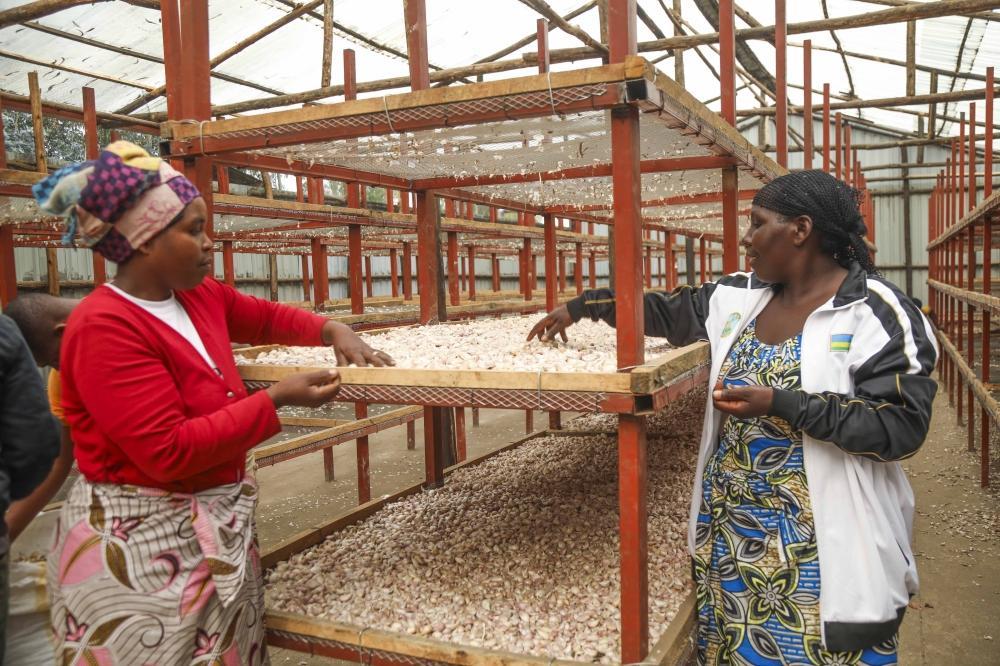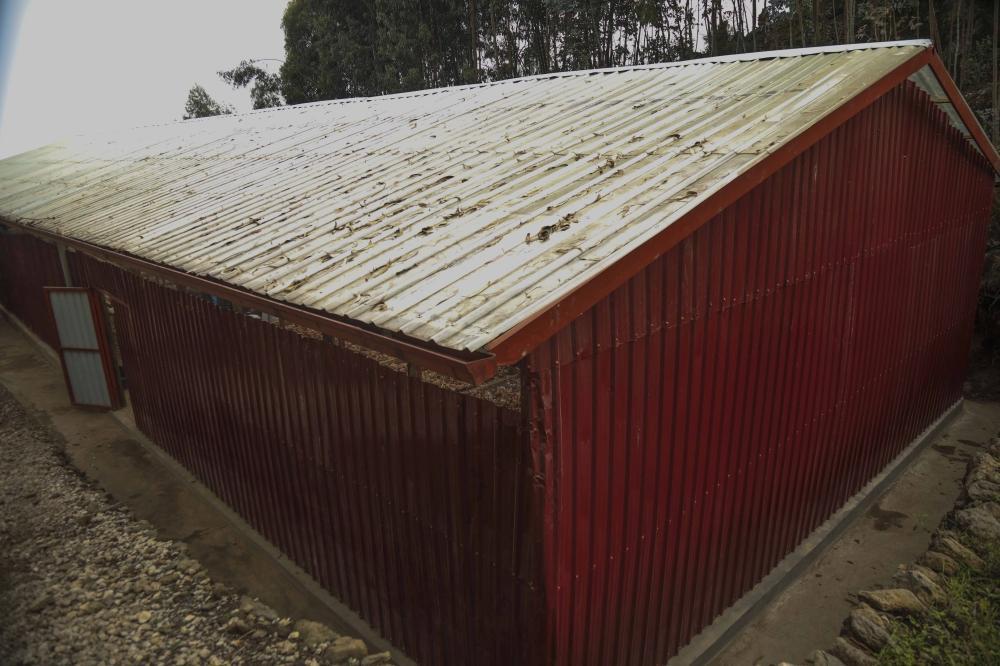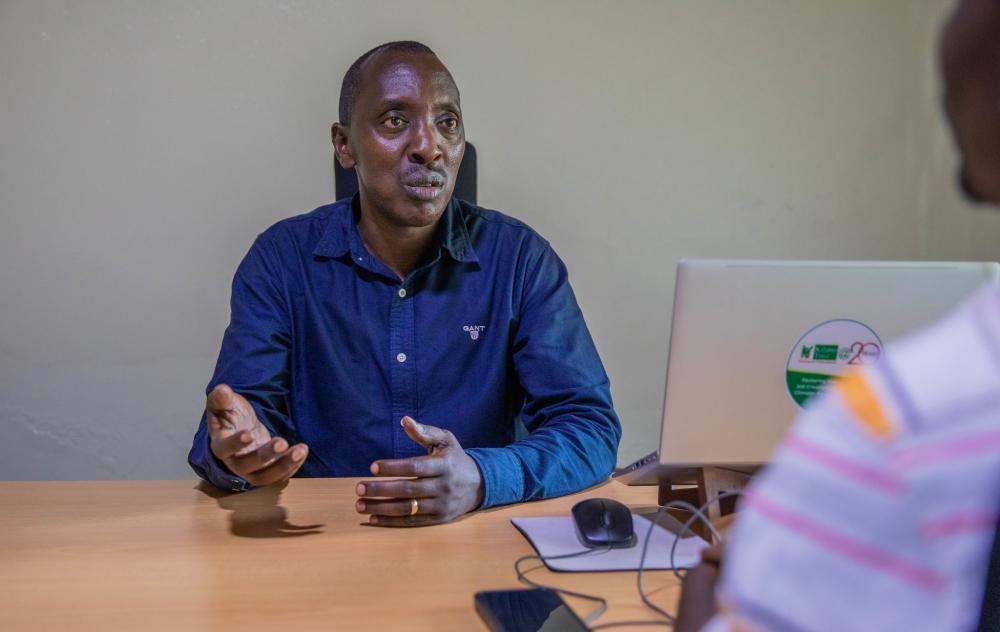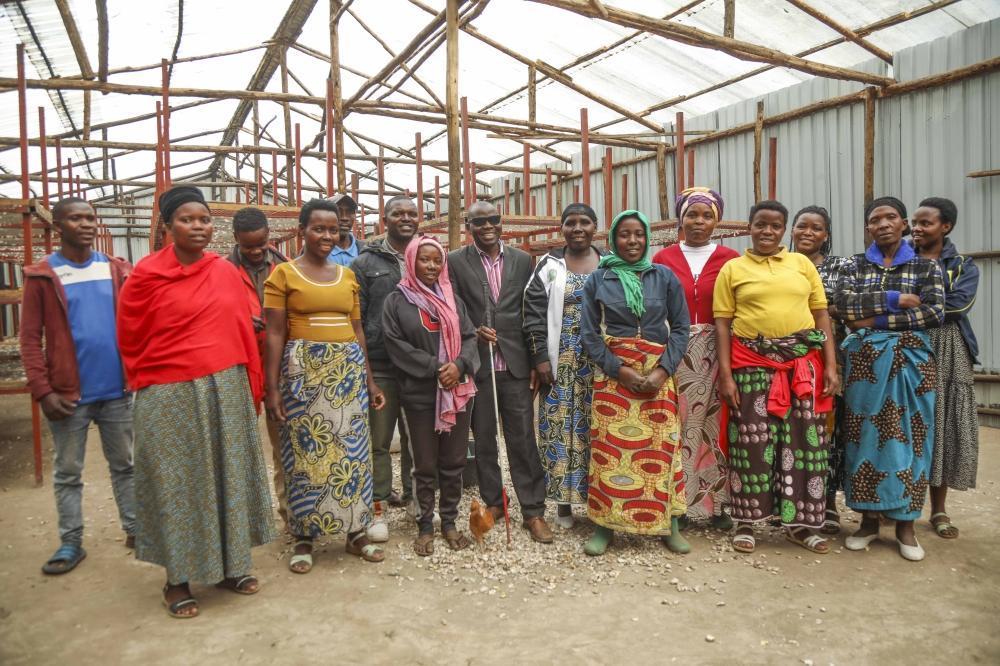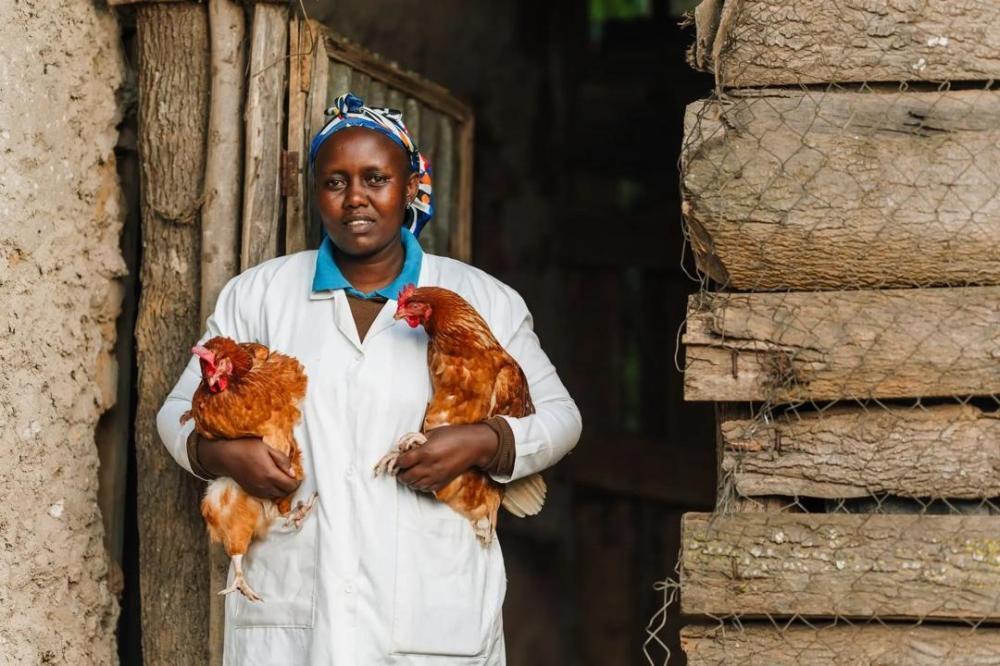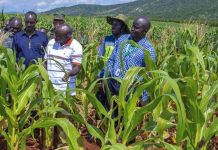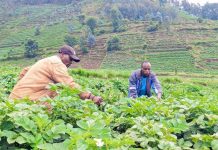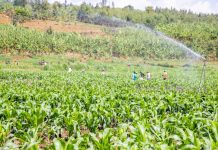Africa-Press – Rwanda. When Vianney Noheli, a young university graduate, completed his studies, he dreamed of a career in agribusiness. But like many youths in rural Rwanda, he lacked both the capital and the practical skills to turn that dream into reality.
Everything changed when he encountered Kilimo Trust.
In 2023, Noheli joined a Kilimo Trust training programme, the Rural Youth Employment Support (R-YES) that was funded by the International Fund for Agricultural Development (IFAD) for job creation. Through R-YES, Noheli was trained in agricultural mechanisation. The course equipped him with hands-on skills in operating, repairing and maintaining farm machinery—skills that would become the foundation of his entrepreneurial journey.
“After completing the training, I graduated with a certificate from Rwanda TVET Board and a category F driving permit. Kilimo Trust connected me to a new opportunity,” he said during an interview with The New Times.
“They recommended me for funding through the Commercialization and De-risking for Agricultural Transformation (CDAT) project and linked me with Hello Tractor, an international company that helped me acquire my first tractor and its implements worth Rwf53 million.”
A 25 metric tonnes capacity onion dryer constructed by Kilimo Trust for Dukomeze Ubuzima cooperative in Musanze District predominately of people with disabilities
Through a matching grant arrangement—half funded through Business Development Fund (BDF), which is a public entity meant to support SME financing, and half financed through Hello Tractor—Noheli acquired a tractor that now serves hundreds of farmers in Kayonza, Kirehe District and elsewhere.
“I provide ploughing and planting services to farmers, and in return, they pay for the work. That’s how I earn my income. The revenue from the tractor has enabled me to pursue a Master’s degree in circular agro-economy—and even start a family,” he said.
“Kilimo Trust helped me achieve my dreams and also monetise them. If I hadn’t undergone vocational training in mechanisation at that time, I wouldn’t have been competitive enough to qualify for the CDAT project.”
Noheli is one of the 750,000 farmers and other value chain actors who have been impacted by the work of Kilimo Trust over the last two decades across the EAC region.
Empowering farmers with technology, skills
For the past 20 years, Kilimo Trust has been a driving force in transforming agriculture across East Africa.
Founded in 2005 with support from the Gatsby Charitable Foundation, the Trust began as a regional grant-making organisation before evolving into a direct-implementation powerhouse focused on agribusiness transformation.
According to Andrew Gashayija, Kilimo Trust’s Country Team Leader in Rwanda, the shift to hands-on implementation in 2011 marked a turning point.
Andrew Gashayija, Kilimo Trust’s Country Team Leader in Rwanda, during an interview. Photo by Craish BAHIZI
“We had to have our foot on the ground across East Africa,” Gashayija said of the approach that was needed to achieve real impact, adding that it involves listening to farmers, understanding their needs, and designing tailored interventions.
Today, Kilimo Trust operates in countries including Rwanda, Uganda, Kenya, Tanzania, and Burundi, delivering projects that strengthen value chains, improve market access, and build technical capacity among farmers, youth, and people with disabilities.
Reducing post-harvest losses, increasing productivity
In Musanze District, Dukomeze Ubuzima Cooperative has experienced a remarkable transformation thanks to the European Union funded project Kungahara implemented by Kilimo Trust, according to the cooperative president Jean Damascène Sinzabaheza.
Before partnering with Kilimo Trust, the cooperative—which is composed largely of people with disabilities as 380 of its 516 members have disabilities—struggled with poor post-harvest handling and heavy produce losses.
“We used to dry garlic and vegetables on tents or mats in the open air,” said Sinzabaheza, who has a visual impairment. “Due to lack of skills in proper harvest handling and absence of decent drying facility coupled with rain, we were losing up to 40 per cent of our harvest.”
Kilimo Trust built a decent drying facility for the cooperative, he said, indicating that the facility has not only reduced losses to less than 10 per cent but also improved the quality and value of their produce.
“Now our products meet market standards, and even non-members pay a fee to use our drying services,” Sinzabaheza explained. “Our membership has grown from 250 to 516, and our assets have increased from Rwf5 million to Rwf80 million.”
The cooperative’s yields have also soared—from 10 tonnes to 30 tonnes of garlic per hectare, and potato yields have more than doubled from eight tonnes to 20 tonnes.
Creating youth employment and new agripreneurs
Through its flagship Rural Youth Employment Support (R-YES) project, Kilimo Trust has created thousands of jobs for young Rwandans. The five-year initiative, launched in 2020, provided technical training and industry linkages that turn unemployed youth into skilled professionals and agripreneurs.
At Rwanda Polytechnic Musanze College, for instance, 323 young people were trained in food processing, and vegetable production, according to Emile Abayisenga, Principal of the college.
He indicated that the college delivered hands-on short courses in milk handling and processing, meat processing and vegetables production and processing.
The organisation, he said, has supported the college in strengthening and expanding its partnerships with agribusiness industries, an area that has traditionally been challenging for the institution.
“Kilimo Trust’s R-YES project addresses two pressing national priorities: youth employment and agricultural value-addition. By placing short, practical trainings at technical colleges (including Musanze College) and linking trainees to industry partners, Kilimo Trust helps transform agriculture from subsistence activity into viable agribusiness livelihoods for rural youth,” he stated.
Another beneficiary, Esther Uwizeye from Gicumbi District, underwent poultry training at RP Gishari College in 2022. Kilimo Trust later supported her with a modern poultry shed equipped with feeders, drinkers, and lighting systems, among other equipment.
“Before, I had 70 chickens in a poor structure. Now I have 150 layers producing marketable eggs,” Uwizeye said.
“By 2027, I plan to expand to 1,000 chickens and start a small animal feed plant,” she said, pointing out that the support from the organisation is in line with achieving her goal.
Years of inclusive transformation
Over the past two decades, Kilimo Trust trained over 50,000 smallholder farmers in Rwanda alone, created nearly 10,000 youth jobs through programmes like R-YES, supported more than 500 people with disabilities to participate in agribusiness, and facilitated over 50,000 tonnes of produce traded through structured markets.
Some of the members of Dukomeze Ubuzima pose in the onion dryer with their president (in the middle wearing dark glasses)
Also, in the past five years alone, it invested over $5 million in Rwanda, improving access to finance, infrastructure, and technical training.
Its support spans various areas of agribusiness including building resilience to climate change through irrigation and fodder storage facilities among others, agricultural mechanisation, addressing post-harvest losses, and agro-processing.
Empowering communities through partnerships and innovation
Kilimo Trust’s success has been built on collaboration—with local institutions such as the Rwanda TVET Board, Rwanda Polytechnic and its colleges, and the Ministry of Agriculture, as well as international partners including IFAD, AGRA, the European Union, Rikolto, and SNV.
“What makes me happiest,” said Gashayija, “is seeing someone who once had nothing now earning a living, managing a business, or employing others. That’s the essence of our 20 years of work—turning potential into prosperity.”
As the organisation marks 20 years of impact, one thing is clear: Kilimo Trust has not only changed livelihoods—it has changed lives.
Birungi Koraturo, Chief Executive Officer of Kilimo Trust, said that Kilimo Trust’s most outstanding achievement is demonstrating that strong partnerships and market-led agricultural development are sustainable ways to improve livelihoods and build resilient communities.
“We have supported over 750,000 farming households across East Africa, helping them access markets, finance, and inputs, resulting in increased productivity and income. This has established Kilimo Trust as a leader in promoting inclusive, sustainable agricultural growth in the region,” she stated.
Looking to the future, she said, Kilimo Trust is committed to addressing some of the region’s most pressing challenges by scaling solutions for food and nutrition security, climate resilience, youth employment, and inclusive markets.
“We will harness digitisation and artificial intelligence to facilitate smarter, data-driven decisions in agriculture, making food systems in East Africa more efficient and accessible,” she observed.
“Our work will remain aligned with the Sustainable Development Goals (SDGs), ensuring that our impact contributes to global efforts to end hunger, reduce poverty, and build a more sustainable planet.”
Esther Uwizeye, one of the Kilimo Trust’s R-YES project graduates now in poultry in Gicumbi District. Courtesy
For More News And Analysis About Rwanda Follow Africa-Press

